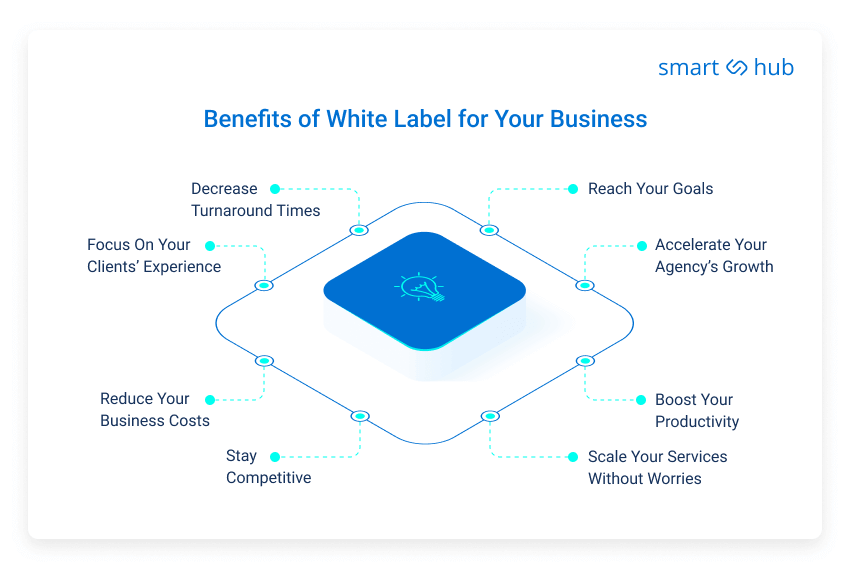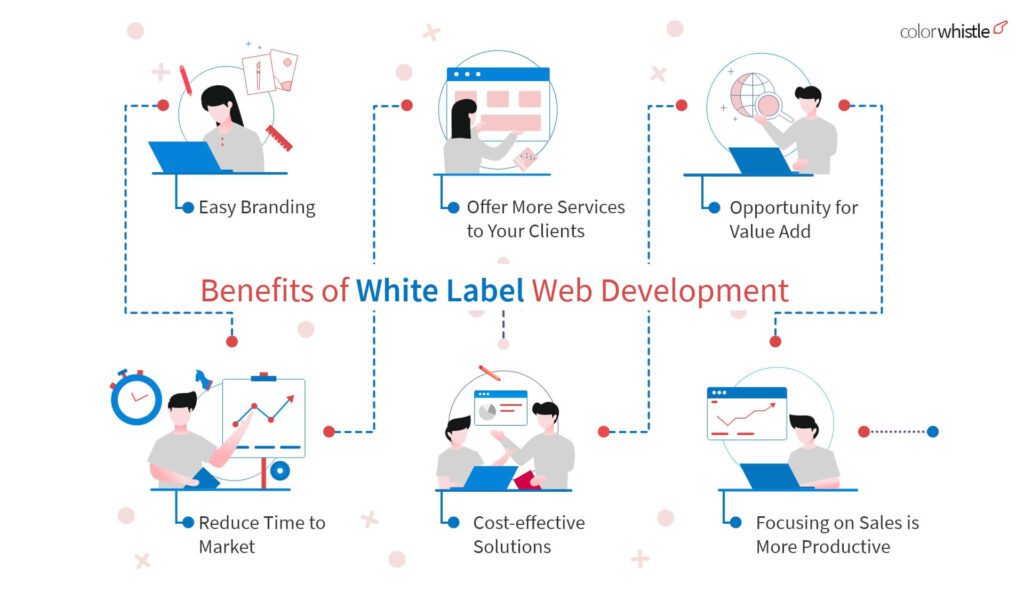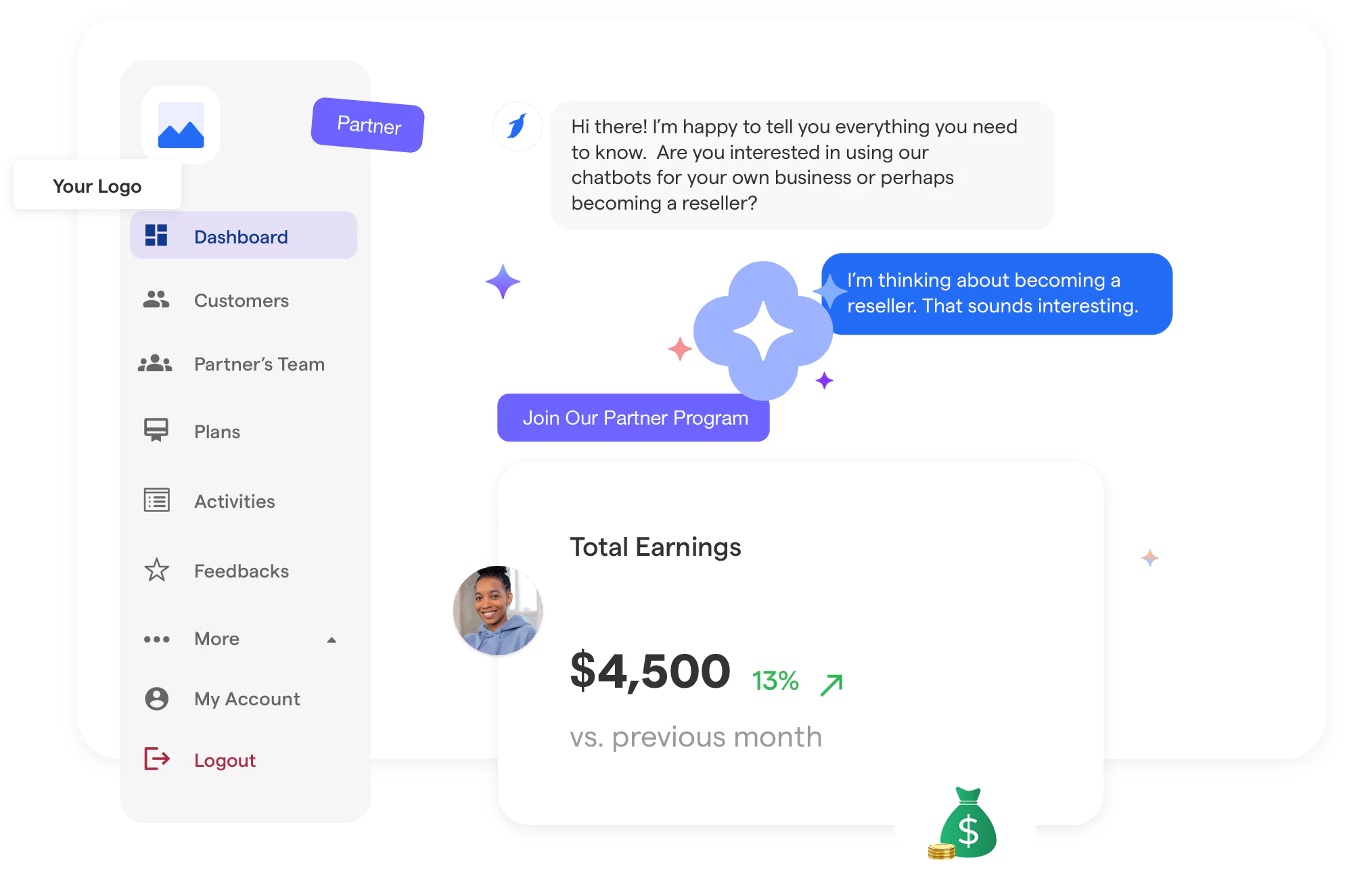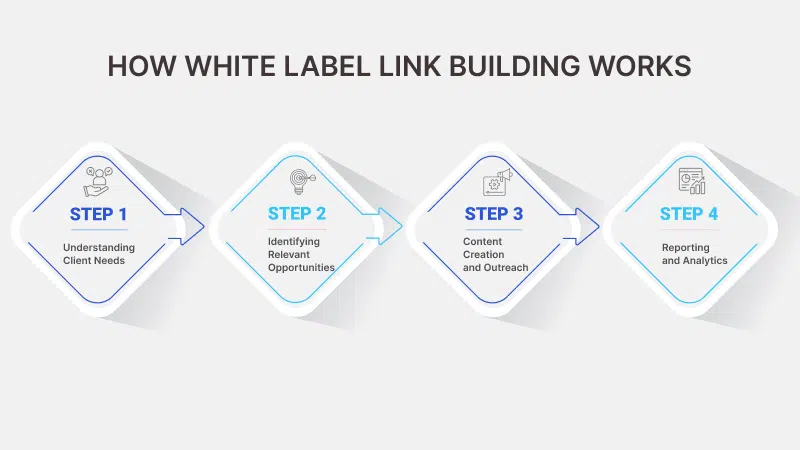Introduction
Welcome to the domain of white-label partnerships. This guide will walk you through everything you need to know about these unique business collaborations.
By the end, you'll have a clear picture of what they are, why they're useful, and how you can benefit from them.
Key Characteristics of Whitelabel Partnerships
They key characteristics of Whitelabel partnerships:

- Product or Service Production: One company creates a product or service that another company will rebrand and sell as its own.
- Branding Flexibility: The branding company can label the product with its own logo, design, and packaging, making it appear as if it's their own creation.
- Division of Labor: The producing company focuses on manufacturing and quality control, while the branding company handles marketing, sales, and customer service.
- Cost Efficiency: The branding company avoids the high costs of product development, research, and initial production setup.
- Speed to Market: By using an existing product, the branding company can enter the market much faster than if they had to develop a product from scratch.
- Scalability: Whitelabel products allow companies to quickly scale their offerings without the need for additional development resources.
- Mutual Benefits: Both parties benefit; the producing company gains a stable client for its product, and the branding company expands its product line without the associated development risks.
- Confidentiality Agreements: Often, these partnerships include confidentiality agreements to protect the interests of both parties and ensure that the producing company's involvement remains discreet.
Importance of Whitelabel Partnership in Business

Here are the points that shows importance of Whitelabel partnership in business:
- Quick Market Entry: Whitelabel partnerships allow businesses to launch new products or services quickly without the time-consuming process of development and production.
- Cost Savings: By leveraging existing products, companies can save significantly on research, development, and production costs.
- Brand Expansion: Businesses can expand their product lines and offer a wider variety of goods or services under their own brand, enhancing their market presence.
- Focus on Core Competencies: Companies can focus on their core strengths, such as marketing and customer service, while relying on the expertise of their whitelabel partners for product creation.
- Reduced Risk: Developing new products comes with risks. Whitelabel partnerships mitigate these risks by using proven products that have already been developed and tested.
- Increased Revenue: By offering a broader range of products or services, businesses can attract more customers and increase their revenue streams.
- Flexibility and Scalability: Whitelabel partnerships provide flexibility to adapt to market demands quickly and scale offerings as needed without extensive development time.
- Competitive Advantage: Businesses can stay competitive by quickly adding new and innovative products to their lineup, keeping up with or surpassing competitors.
Types of Whitelabel Partnerships
Let's dive into the different types of whitelabel partnerships and how they work in various industries.
Software and Technology Whitelabels

When it comes to software and technology whitelabels, think of it like a ready-made solution.
Companies develop software applications, like mobile apps or business tools, and offer them to other businesses.
These businesses can then customize and sell these apps under their own brand. It's like buying a cake from a bakery and adding your own icing and decorations before selling it in your shop.
Product Whitelabels
Product whitelabels are common in industries like cosmetics, electronics, or even food. Here, a manufacturer produces goods, and another company puts their label on them.
For example, a skincare company might partner with a lab that creates high-quality creams. The skincare company then sells these creams under its own brand name.
It's like buying a delicious cookie from a bakery and packaging it with your own label to sell in your café.
Service Whitelabels

In service whitelabels, companies offer services that others can rebrand as their own. Think of it as a chef preparing a gourmet meal in a restaurant's kitchen, and another restaurant serves it under their own name.
Services like digital marketing, IT support, or even content creation can be whitelabeled. For instance, an agency might excel at creating websites.
Another business can offer these websites to their clients under their own branding, making it look like they've designed them.
These types of whitelabel partnerships provide flexibility and efficiency for businesses looking to expand their offerings without investing heavily in development.
Whether it's software solutions, physical products, or professional services, whitelabeling opens doors for companies to grow their business and meet market demands swiftly and effectively.
Suggested Reading : White Label Software
Understanding Whitelabel Digital Marketing
Whitelabel digital marketing involves offering marketing services under a brand that isn't the original producer. This approach allows agencies to provide a comprehensive suite of services without having to develop each capability in-house.
Two key components of whitelabel digital marketing are whitelabel SEO tools and white label link building:

White Label SEO Tool
Whitelabel SEO tools enable agencies to offer SEO services under their branding. These tools typically provide features such as keyword research, site audits, backlink analysis, and performance tracking.
By utilizing a white label SEO tool, agencies can deliver detailed, branded reports to clients, enhancing their service offerings without the need for proprietary software development.
This not only saves time and resources but also allows for a consistent client experience across various aspects of digital marketing.
Suggested Reading : Whitelabel Chatbot
White Label Link Building

White label link building services allow agencies to outsource the process of acquiring high-quality backlinks to enhance their clients’ search engine rankings.
This involves collaborating with providers who specialize in creating and securing links from reputable websites. By integrating these services under their brand, agencies can present a comprehensive link building strategy as part of their SEO offerings.
This approach ensures that clients receive high-quality backlinks without the agency needing to invest in building an extensive outreach network themselves.
Incorporating white label SEO tools and link building services enables agencies to expand their service portfolios, improve client satisfaction, and achieve better results while maintaining brand consistency.
Frequently Asked Questions (FAQs)
What is a whitelabel partnership and how does it work?
A whitelabel partnership is an agreement where a company provides services or products to another company without branding, allowing the latter to brand it as their own and sell it to end customers.
What are the benefits of entering into a whitelabel partnership?
Benefits include expanding product offerings, entering new markets quickly, reducing production costs, focusing on core competencies, and leveraging the partner's brand for business growth.
How to choose the right whitelabel partner for your business?
Criteria include assessing the partner's product quality, reliability, support capabilities, customization options, pricing structure, and their alignment with your business goals.
What are the common challenges faced in whitelabel partnerships?
Challenges can include quality control issues, mismatched expectations, communication barriers, and conflicts over customer support and product updates.
Can whitelabel products or services be customized to fit a brand's needs?
Yes, most whitelabel partnerships offer customization options to ensure the product or service fits seamlessly with the brand's identity and customer expectations.
